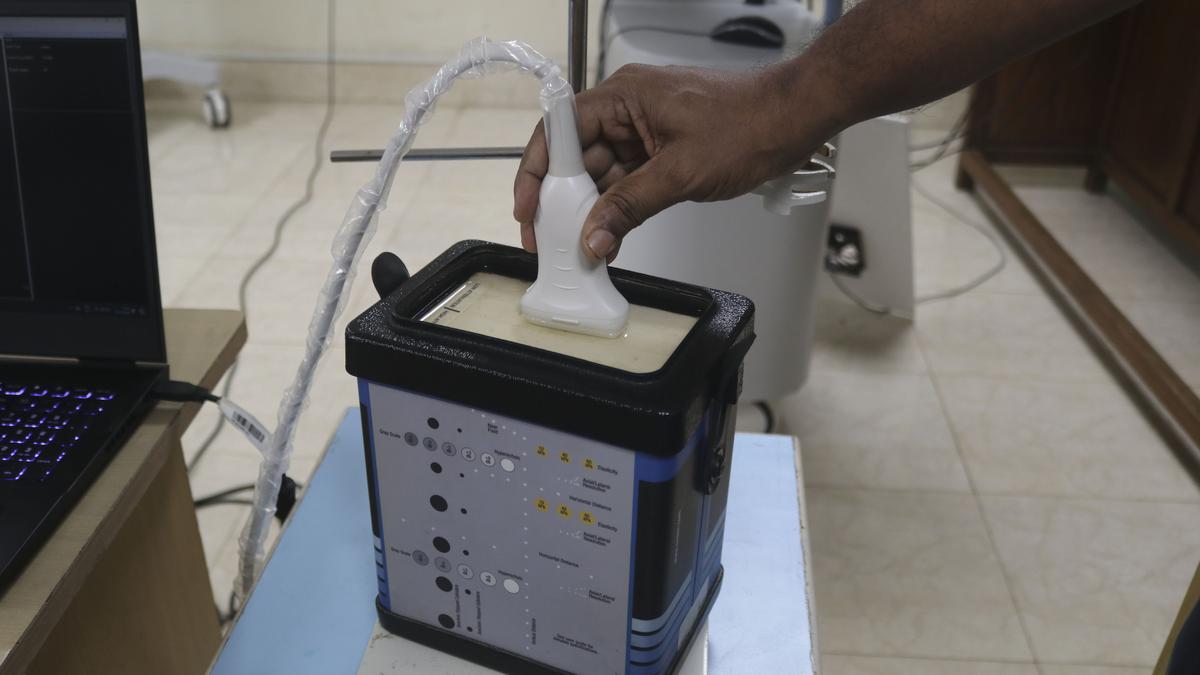
IIT-Madras researchers develop portable ultrasound scanner for diagnosis of sports injuries
The Hindu
Ultrasound Scanner for Sports Injuries: IIT Madras researchers develop a portable POCUS scanner for sports injuries with AI, patents, and on-field diagnosis potential.
Researchers from the Indian Institute of Technology (IIT) Madras have developed an indigenous portable Point-of-Care-Ultrasound (POCUS) Scanner for diagnosis of sports injuries.
According to a press release, this device, from the institute’s Centre of Excellence in Sports Science and Analytics (CESSA), could potentially allow for on-field diagnosis of injuries and an immediate assessment of the extent of injury that will allow for medical professionals to take a call on whether to permit the sportsperson to continue playing. The researchers have already been granted several patents for the technologies that went into this device and are working towards productisation.
The Artificial Intelligence-powered scanner has a wide range of applications in sports medicine. It has the benefits of safety - no radiation - and sufficient resolution compared to other modalities.
A working POCUS prototype for Musculoskeletal imaging developed at the Biomedical Ultrasound Imaging Lab is currently ready. The researchers are looking at completing the product prototype development by 2024. Testing and collection of pilot data from the field is also being planned in coordination with sports authorities.
Arun K. Thittai, Department of Applied Mechanics and Biomedical Engineering, IIT Madras, who led the team that developed this device, said that they observed a current technological gap and a need for a Point-of-Care device for injury management and rehabilitation of elite athletes within routine training premises. A quick assessment on the field would help sports players get immediate attention and focus on recovery.
He added that the inputs from the POCUS assessment would be taken into the bigger AI platform for a holistic athlete management system. “We are currently exploring all options to take up POCUS for musculoskeletal imaging for commercial translation,” Prof. Thittai, who is also a faculty member of CESSA, IIT Madras, said in the release.


















